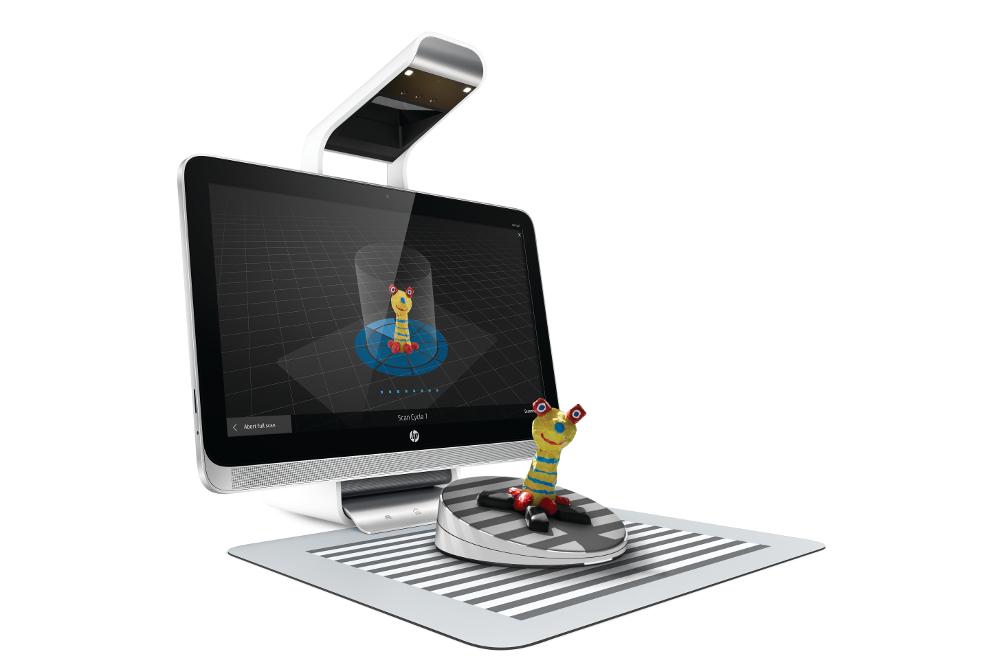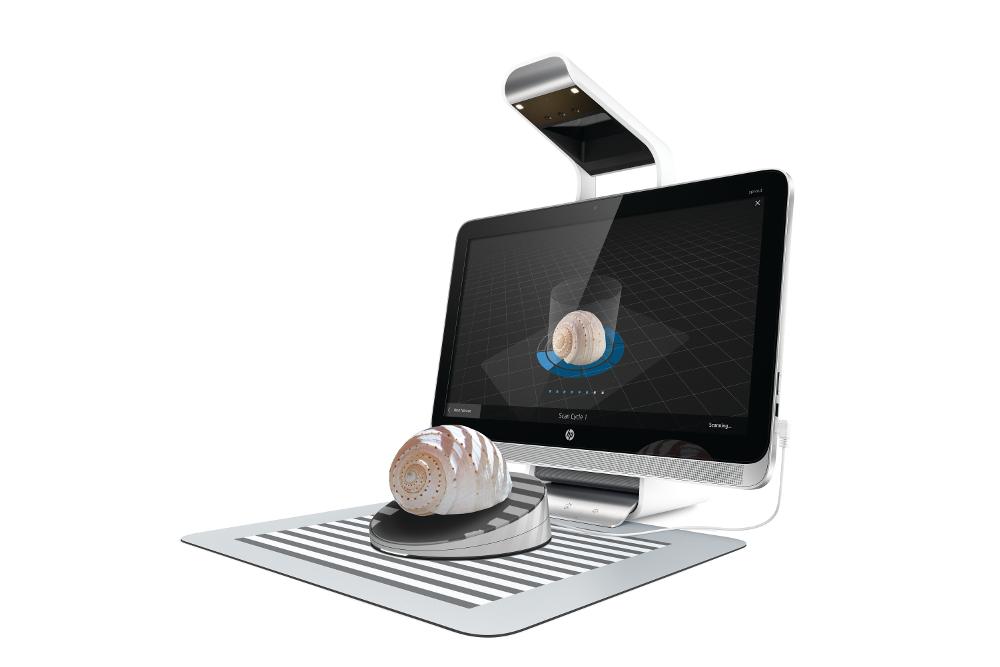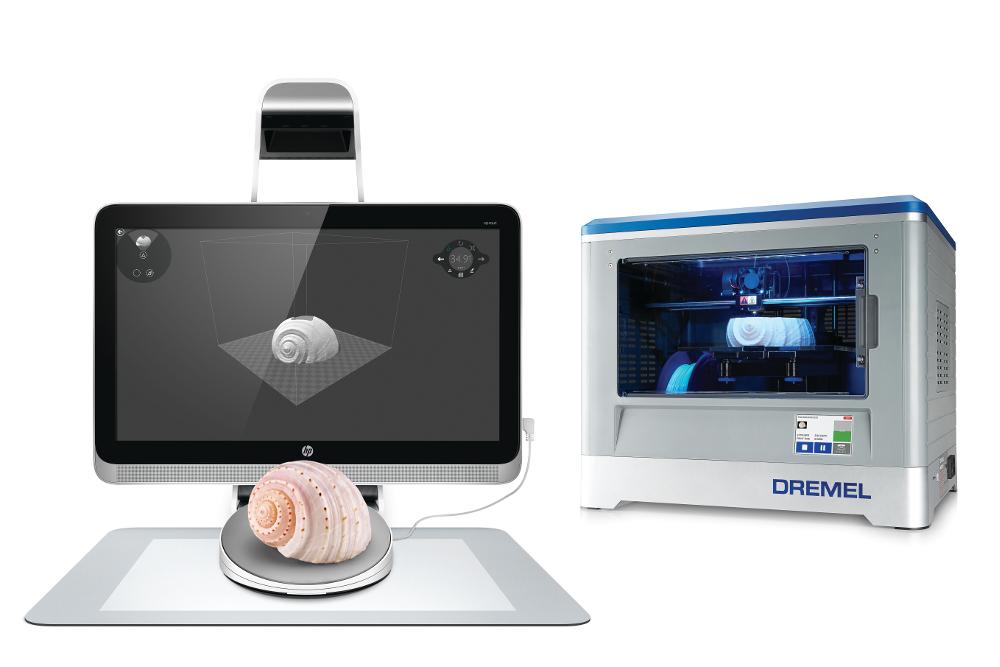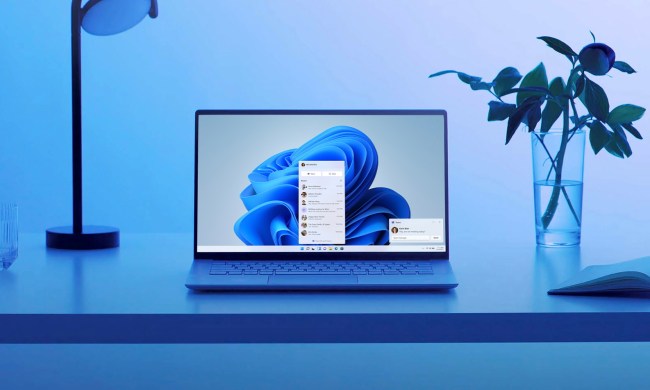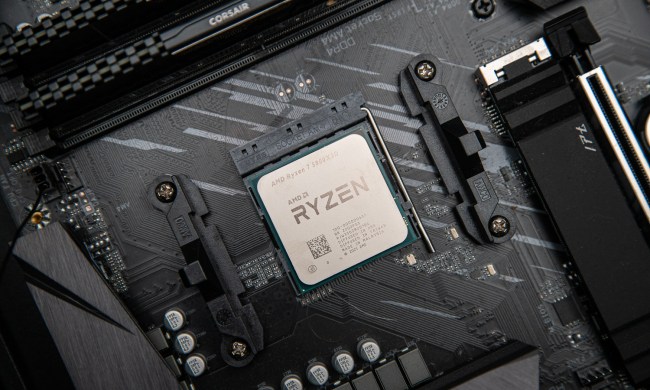Now the company has taken Sprout’s 3D editing prowess a step further with an all-new “3D Capture Stage,” which is essentially a 3D scanner. Sprout owners who purchase the Capture Stage can scan objects up to 200 millimeters on each side (about 8 inches)using the stage with proprietary software from HP. Currently, the company is quoting a resolution of 500 microns, but that should improve over time as resolution is presently limited by software performance rather than hardware capability.
The Capture Stage platform rotates and tilts underneath the Sprout’s Intel RealSense 3D camera to provide a complete scan of the object’s entire surface aside from the bottom, but users can combine multiple scans to completely map an object’s surface. The camera even detects color and texture and uploads that information to the model it creates, a feature that sets it apart from many competitors. No new hardware aside from the 3D Capture Stage is required — it works with all existing Sprouts, and connects via USB 3.0.
Once an object is scanned, it can be used with a variety of other software editors and with virtually any currently available 3D printer. HP says it is working to support deliver-by-mail 3D printing services, as well. Sprout will let users share their creations through social media or create an animated .gif of the object being scanned — which probably isn’t the most practical feature, but will certainly look cool.
3D scanners are not new. Several consumer models are on the market, such as the Makerbot Digitizer, which can handle objects of similar size. HP’s 3D Capture Stage separates itself from existing options, though, with its highly integrated approach and low price. HP believes entering the Sprout ecosystem – which now includes the computer itself, the software it runs, and the 3D scanner – will be easier for both businesses and hobbyists.
The $299 price tag is also far lower than competitors like the Makerbot Digitizer, which is $799 – if you have a Sprout already. The 3D Capture Stage will hit retail in July. The Sprout is $1,899 and available immediately.

